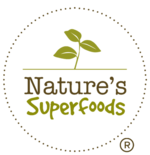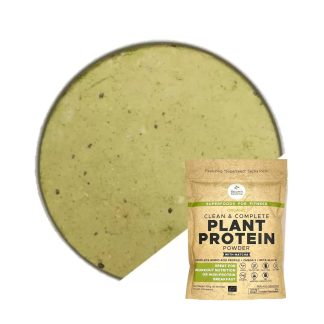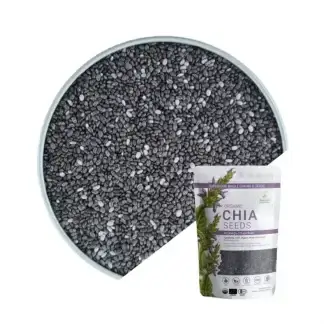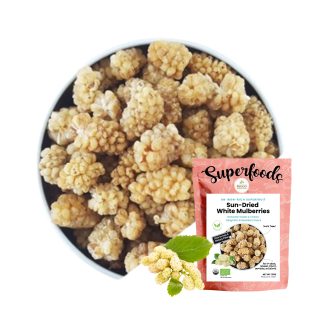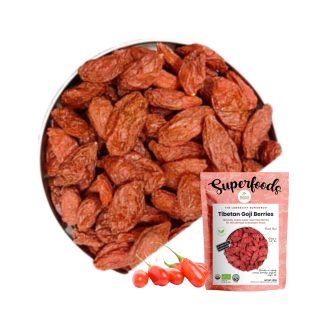-
No products in the cart.
Gout
Superfoods to Treat Gout Naturally
Waking up in the middle of the night with a burning sensation on your big toe? Swelling, redness and tenderness on one or more joints? These are common symptoms associated with Gout – so what is gout exactly? It is a type of chronic disease with intermittent painful arthritis that occurs predominantly in the toes, foot, ankles, or knees. Gout attacks are episodes of sudden pain in the joints, which can cause severe limitations in joint function (e.g., walking, climbing, etc.). In the early stages, gout attacks usually affect one joint with complete resolution of symptoms between attacks. However, gout attacks can involve multiple joints at a later stage1.1
What Causes Gout?
When it comes to the cause of gout, attacks are often associated with the accumulation of urate crystals in the joints. These urate crystals are formed when there is a high level of uric acid in the blood. When purine, the chemical found naturally in our bodies like the DNA of cells, food, or drinks, is broken down, uric acid is produced. As uric acid builds up in the blood (i.e., hyperuricemia) because of the excessive consumption of high-purine foods, the risk of suffering from gout increases. As mentioned, the excess uric acids will then form crystals at the joints and tissues, resulting in pain and inflammation1.1
Foods to Avoid for Gout & Dietary Tips to Better Manage It
The general principles of foods to avoid for gout and those to consume is similar to standard healthy diet recommendations2:
1. Choose unrefined carbohydrates
Consume more fresh fruits, vegetables and wholegrains (e.g., brown rice, oats, and superfood grains and seeds like organic quinoa seeds, etc.). These foods not only help to improve your bowel movement and provide a steady source of energy, but they can also help to lower the occurrence of gout attacks. However, be sure to opt for low-purine options like apples, pears, cabbage, and beetroot. Avoid food that contains high-fructose corn syrup (e.g., ketchup, snacks, candies, etc.) and limit the consumption of sweetened beverages.
2. Limit intake of bad fats like saturated fats
Minimise your intake of saturated fat from red meat, fatty poultry, and high-fat dairy products (e.g., butter). Red meat and sweetbreads are also considered high-purine foods which might trigger gout flare-ups. Instead, opt for foods that are high in good fats (e.g. fatty fishes, unsalted baked nuts, organic black chia seeds, chia seed oil, sacha inchi seed oil, sacha inchi seeds, etc.).
3. Choose plant or lean protein
Opt for lean meat or skinless poultry. If you are vegan and require a convenient source of protein, you can also consider obtaining it through natural plant based protein powder too. Switching to a plant-based diet not only provides a rich source of fibre, vitamins and minerals but can also reduce the risk of gout and offers other potential health benefits.
4. Minimise intake of high-purine foods
Food such as liver, kidney, beef, lamb, pork, anchovies, shellfish, sardines, tuna, beer, and distilled liquors are relatively high in purine and can contribute to a high level of uric acid. Consuming alcohol also inhibits your body’s ability to excrete uric acid, increasing the risk of its build-up.
5. Drink more water
Drink at least 2 liters of plain water per day. Drinking plenty of fluids will help better manage gout flares as it will help flush out the excess uric acid. Staying hydrated will also prevent the formation of kidney stones and other issues that may arise from the build-up of uric acid.
6. Vitamin C
Some studies have shown that Vitamin C may help to lower uric acid levels. Hence, individuals with gout may benefit by adding citrus fruits and foods that are high in Vitamin C. Try adding superfoods like camu camu berry powder, fruits like strawberries, and organic snacks like sun-dried mulberries and goji berries into your diet for a positive impact on gout.
7. Weight loss
Being overweight or obese increases one’s risk of developing gout. This is because as bodies hold more weight, kidneys tend to work less efficiently in ridding the body of uric acid. Therefore, by reducing your weight to a healthy level (i.e., BMI = 18.5 to 22.9 kg/m2), the number of gout attacks can be reduced even without a purine-restricted diet. Furthermore, losing weight also helps to reduce the overall stress on joints.
Importance of Following a Gout Diet
Following a healthy diet can help to limit uric acid production and increase its elimination, thus reducing the number of gout attacks and limiting their severity. However, a gout diet isn’t likely to be adequate to lower the uric acid concentration in your blood enough to treat your gout without medication.
If you have gout, it is essential to seek treatment to lower the uric acid levels in your blood. Consult an orthopedic surgeon to consider suitable treatment options for you.
References
- Ministry of Health Singapore. 2019. Gout: Causes and Treatment. Available at: https://www.healthhub.sg/a-z/diseases-and-conditions/753/What-is-gout [Accessed 29 April 2021]
- Mayo Clinic. 2020. Gout diet: What’s allowed, what’s not. Available at: https://www.mayoclinic.org/healthy-lifestyle/nutrition-and-healthy-eating/in-depth/gout-diet/art-20048524 [Accessed 29 April 2021]
- Harvard Health Publishing. 2019. Lifestyle changes to reduce the risk of gout attacks. Available at: https://www.health.harvard.edu/pain/lifestyle-changes-to-reduce-the-risk-of-gout-attacks [Accessed 29 April 2021]
Browse Superfoods for Natural Gout Remedy
Showing all 4 results
-
Organic Plant Protein Powder – Matcha
$32.90Out of stock
View More This product has multiple variants. The options may be chosen on the product page -
Organic Premium Black Chia Seeds
$11.90 – $22.90 View More This product has multiple variants. The options may be chosen on the product page -
Organic Sun-Dried White Mulberries
$6.90 View More This product has multiple variants. The options may be chosen on the product page -
Organic Tibetan Goji Berries (Dried)
$8.90 – $22.90 View More This product has multiple variants. The options may be chosen on the product page
Showing all 4 results
